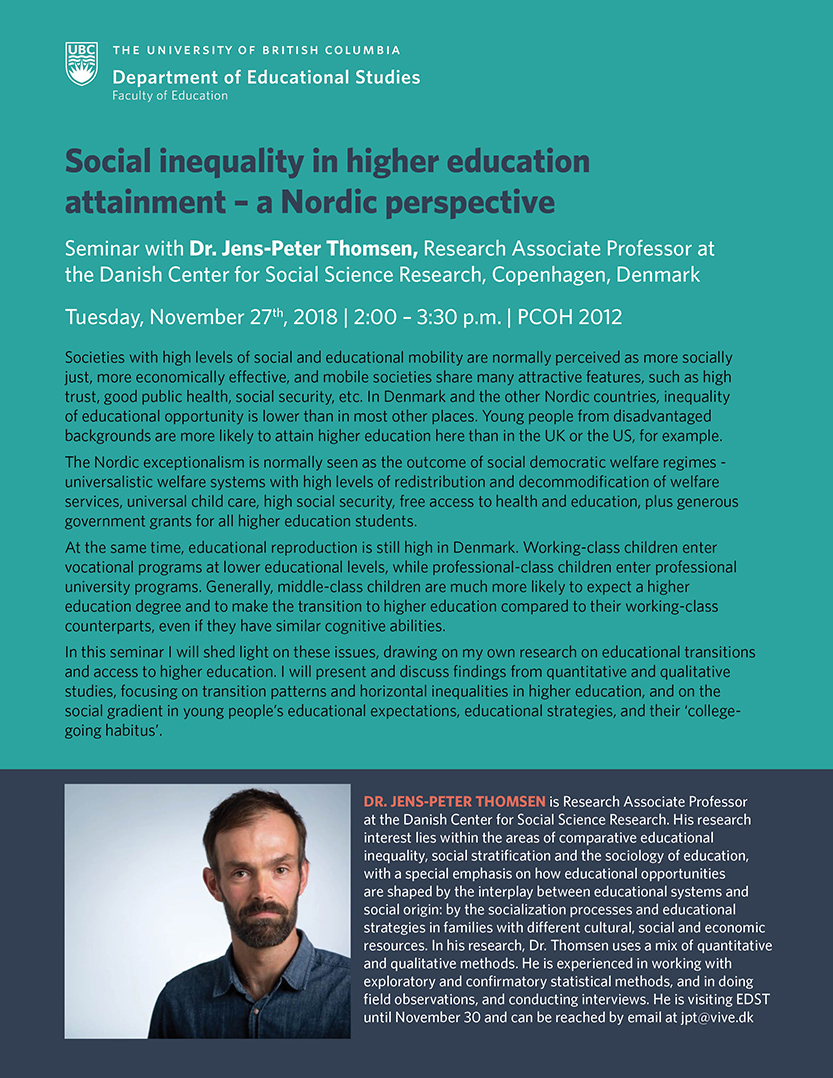Social inequality in higher education attainment – a Nordic perspective
Seminar with Dr. Jens-Peter Thomsen, Research Associate Professor at the Danish Center for Social Science Research, Copenhagen, Denmark
Tuesday, November 27th, 2018 | 2:00 – 3:30 p.m. | PCOH 2012
Societies with high levels of social and educational mobility are normally perceived as more socially just, more economically effective, and mobile societies share many attractive features, such as high trust, good public health, social security, etc. In Denmark and the other Nordic countries, inequality of educational opportunity is lower than in most other places. Young people from disadvantaged backgrounds are more likely to attain higher education here than in the UK or the US, for example.
The Nordic exceptionalism is normally seen as the outcome of social democratic welfare regimes – universalistic welfare systems with high levels of redistribution and decommodification of welfare services, universal child care, high social security, free access to health and education, plus generous government grants for all higher education students.
At the same time, educational reproduction is still high in Denmark. Working-class children enter vocational programs at lower educational levels, while professional-class children enter professional university programs. Generally, middle-class children are much more likely to expect a higher education degree and to make the transition to higher education compared to their working-class counterparts, even if they have similar cognitive abilities.
In this seminar I will shed light on these issues, drawing on my own research on educational transitions and access to higher education. I will present and discuss findings from quantitative and qualitative studies, focusing on transition patterns and horizontal inequalities in higher education, and on the social gradient in young people’s educational expectations, educational strategies, and their ‘college-going habitus’.
Dr. Jens-Peter Thomsen is Research Associate Professor at the Danish Center for Social Science Research. His research interest lies within the areas of comparative educational inequality, social stratification and the sociology of education, with a special emphasis on how educational opportunities are shaped by the interplay between educational systems and social origin: by the socialization processes and educational strategies in families with different cultural, social and economic resources. In his research, Dr. Thomsen uses a mix of quantitative and qualitative methods. He is experienced in working with exploratory and confirmatory statistical methods, and in doing field observations, and conducting interviews. He is visiting EDST until November 30 and can be reached by email at jpt@vive.dk
